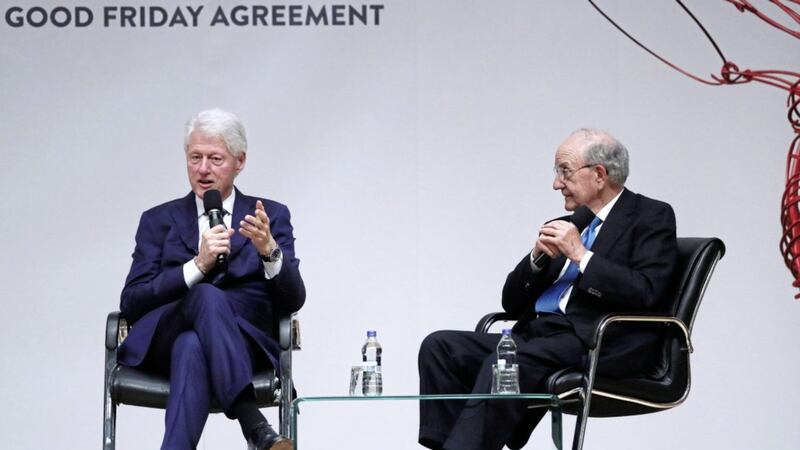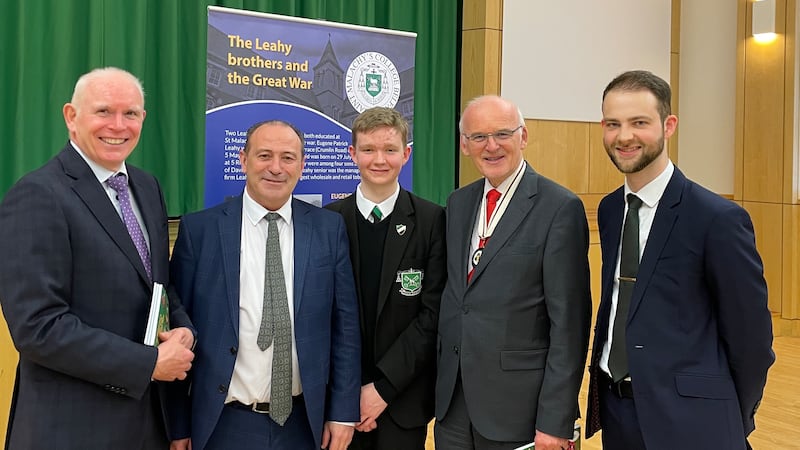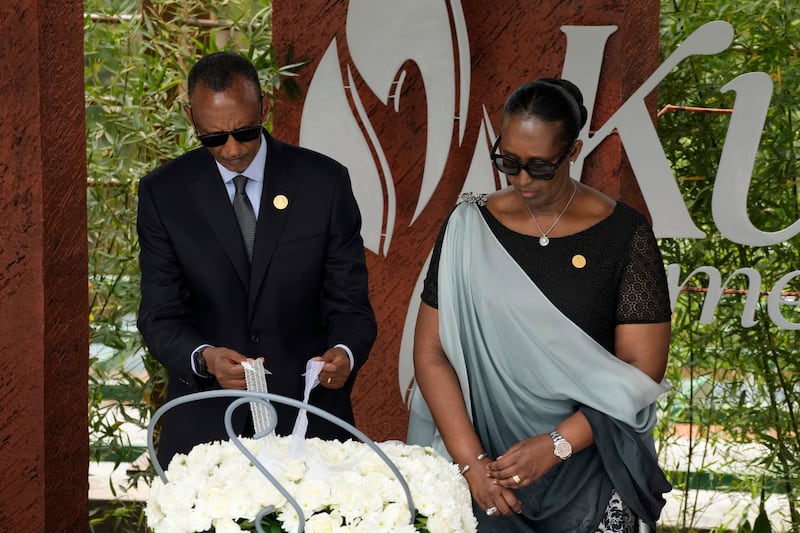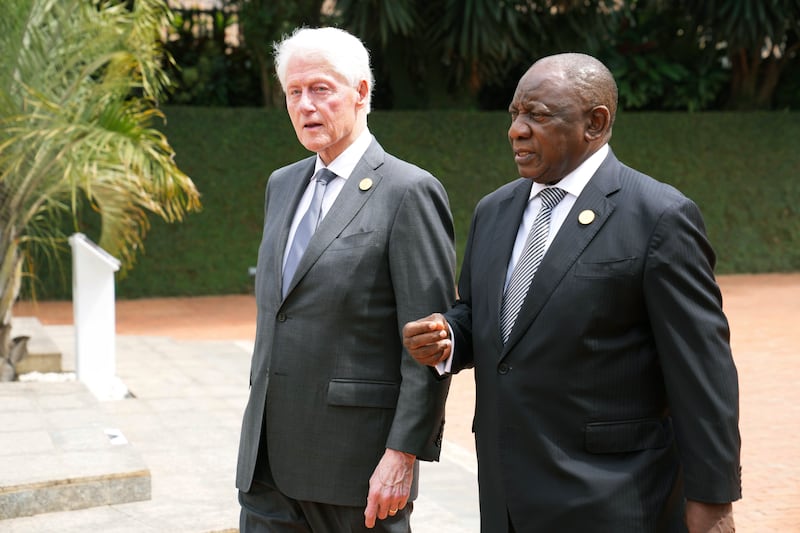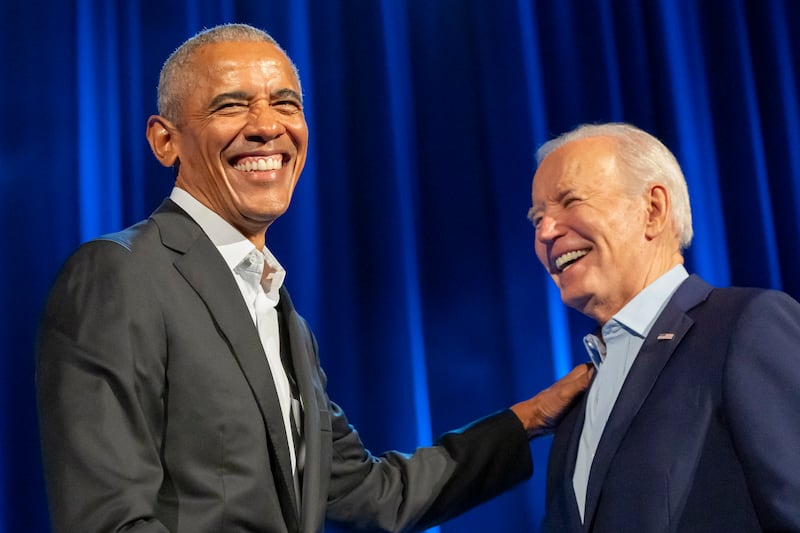The Good Friday Agreement was the "work of genius" and a "precious gift", former US President Bill Clinton has told an audience in Belfast.
Speaking on the 20th anniversary of the historic 1998 peace accord, he urged the people of Northern Ireland to "inspire" the world again.
"The Good Friday Agreement is the work of genius that's applicable if you care at all about preserving democracy," he told a special event at Queen's University.
"Because it called for a real democracy, majority rule, minority rights, individual rights, the rule of law, the end of violence, shared political decision-making, shared econpmic benefits, shared special relations, maintained the relationship with the United Kingdom, expanded the relationship with the Irish Republic and then let the future take its course."
Mr Clinton told an audience that included current political leaders, dignitaries and schoolchildren not to underestimate the work done by people of different persuasions.
"These people gave you a gift," he said. "People who lost loved ones and bore scars; the women's groups; everybody, they gave you a gift. Make the most of it. It is a precious gift."
"The Good Friday Agreement is the work of genius that's applicable if you care about preserving democracy" - former US president Bill Clinton on Good Friday Agreement's 20th anniversary https://t.co/DP38Di35r5 pic.twitter.com/LFnnh0kBMz
— BBC News (UK) (@BBCNews) April 10, 2018
He said the 1998 accord reminded that "democracy is better than dictatorship".
"Remember you inspired the world 20 years ago, you can do it all over again because the rest of the world continues to do foolish things – you do smart things."
Mr Clinton added: "By creating that space for the identity, and the interest and value of all the people involved in a framework which protected democracy and let future demographic, political and economic changes take Northern Ireland wherever it would go, it was a work of genius.
"In a world today where there are people who are aggressively trying to destroy the very idea of popular democracy, it embodied everything that I believe works best."
Senator George Mitchell, the former special envoy who brokered the deal, hailed the "heroes and peacemakers" who helped end decades of violence in the north.
He also urged the region's current political leaders to take inspiration from the "courage and vision" shown in 1998.
Opening yesterday's conference marking the 20th anniversary of the agreement, Senator Mitchell said: "These were ordinary men and women who after 700 days of failure they joined in one day of success and they changed the course of history."
At one point during his address he asked those involved in reaching the agreement to stand for lengthy applause from the audience packed into the Whitla Hall.
"The real heroes of the agreement were the people of Northern Ireland and their political leaders," he said.
"The people supported the effort to achieve the agreement and afterwards they voted overwhelmingly to ratify it."
Journalists don’t clap at events, we’re observers, but I just stood and clapped for an inspirational George Mitchell a man in his 85th year who still works tirelessly for others #GFA20 pic.twitter.com/bWFRSNUTol
— Allison Morris (@AllisonMorris1) April 10, 2018
He said the north's political leaders had summoned extraordinary courage and vision to reach agreement, often at great risk to themselves, their families and their political careers.
"I ask you to join me in recognising the heroes and the peacemakers."
Senator Mitchell said that while the current impasse was difficult, Northern Ireland should not be held to a higher standard to everywhere else in the world.
"What we must do now is not to despair, not to look backwards, but to reaffirm to the people and the leaders of Northern Ireland – our dedication to the principle of political differences here and elsewhere must be resolved through peaceful and democratic means, not through the use or threat of violence," he said.
"The real heroes of the agreement were the people of Northern Ireland and their political leaders" - former US Senator, George Mitchell, who chaired Good Friday Agreement talks https://t.co/DP38Di35r5 pic.twitter.com/gnw8uaOGHC
— BBC News (UK) (@BBCNews) April 10, 2018
